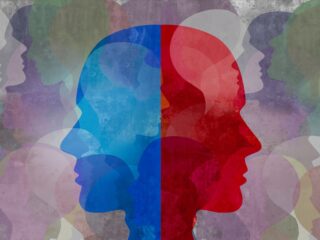Benzodiazepines are a class of medications commonly prescribed to treat anxiety, insomnia, and seizures. However, concerns have been raised about their potential effects on pregnant women and their developing babies. Gaining a better understanding of how these drugs may impact maternal and fetal health helps expectant mothers make informed decisions about taking benzodiazepines during pregnancy and when to seek help for addiction to benzos.
Associated Risks of Benzodiazepines During Pregnancy
The use of benzos during pregnancy has been associated with several potential risks. These include an increased risk of miscarriage, preterm birth, low birth weight, and developmental delays in the child. Additionally, exposure to benzodiazepines in utero can result in withdrawal symptoms or other complications for the newborn. Pregnant women must be aware of these risks and consult with their healthcare provider before taking benzos during pregnancy.
Risk Factors for Mothers
While benzos can help manage symptoms of anxiety or insomnia, there are important risk factors for pregnant mothers to consider. Benzodiazepine use during pregnancy has been associated with an increased risk of maternal complications such as respiratory issues, sedation, drowsiness, dependence, and addiction to the medication.
Can an Expecting Mother Take Benzos Safely?
Expecting mothers should consult with their healthcare provider before taking benzos during pregnancy. In some cases, the medication’s benefits outweigh the potential risks. For some women, stopping benzo use during pregnancy could be more harmful to them than continuing the medication under medical supervision. A healthcare provider can help weigh these factors and determine if it is safe to take benzos during pregnancy.
Is There a Safe Dosage Amount?
There is no universally safe dosage for taking benzodiazepines during pregnancy. Pregnant women must work closely with their healthcare provider to determine the most appropriate treatment plan that minimizes risks to both mother and baby.
Effects on the Expecting Mother
Benzodiazepines can have various effects on expecting mothers, including sedation, drowsiness, confusion, and changes in mood or behavior. Additionally, benzo use may increase the risk of respiratory issues or complications during labor and delivery. Continued use of benzos during pregnancy can lead to dependence and addiction.
Effects on the Unborn Child
Exposure to benzodiazepines during pregnancy can potentially have adverse effects on the unborn child. These may include an increased risk of birth defects, developmental delays, withdrawal symptoms at birth, low birth weight, respiratory problems, and long-term cognitive or behavioral issues.
Withdrawal Symptoms in Babies
Withdrawal symptoms in babies can include irritability, feeding difficulties, tremors, and seizures. Healthcare providers need to monitor these newborns closely and provide appropriate care and support to manage any withdrawal symptoms.
Birth Defects and Developmental Delays
Studies suggest that certain benzos may be linked to specific congenital disabilities, such as cleft lip or palate, heart defects, and neural tube defects. Additionally, some research indicates that prenatal exposure to benzos can result in long-term developmental delays in areas such as motor skills, language development, and cognitive abilities.
NAS (Neonatal Abstinence Syndrome)
Neonatal Abstinence Syndrome (NAS) is a condition that can occur in newborns exposed to benzos. Babies with NAS may experience withdrawal symptoms after birth due to their dependence on the drug during pregnancy. Symptoms of NAS can vary but may include tremors, irritability, feeding difficulties, seizures, and respiratory problems.
Benzos Entering the Blood Stream During Pregnancy
Benzos can cross the placental barrier and enter the bloodstream of the developing fetus during pregnancy. This exposure potentially impacts the baby’s development and health, leading to various risks such as birth defects, withdrawal symptoms after birth, and long-term effects on cognitive or behavioral functioning.
Signs of Benzo Addiction
Signs of benzo addiction can include:
- Increased tolerance to the medication, requiring higher doses for the same effect.
- Withdrawal symptoms when attempting to reduce or stop use.
- Continued use despite negative consequences on health, relationships, or daily functioning.
- Preoccupation with obtaining and using benzos, including doctor shopping.
- Inability to control or limit benzodiazepine intake.
- Easily becoming angry or upset.
- Difficulty with maintaining daily responsibilities.
- Socially withdrawing from friends and family.
- Physical and psychological symptoms, such as drowsiness, headaches, confusion, fatigue, mood swings, memory problems, muscle weakness, and impaired judgment.
Gender-Specific Care for Expecting Moms
Gender-specific care for expecting moms addicted to benzos involves tailored treatment approaches that address the unique needs and challenges faced by pregnant women. This may include specialized prenatal care, addiction counseling, and medication-assisted treatment options that are safe for both mother and baby. Comprehensive support services can help ensure the health and well-being of the pregnant woman and her unborn child throughout the recovery process.
Start Benzo Detox and Addiction Treatment in Columbus, OH Today
When you want to take steps to protect your unborn baby and address your benzo addiction, help is available at Ohio Addiction Recovery Center in Columbus, OH. We offer gender-specific detox and addiction treatment programs, including ones for pregnant women. Our caring and supportive team provides compassionate and personalized treatment options tailored to your specific needs.
Contact us today to get help for addiction to benzodiazepines during pregnancy.






